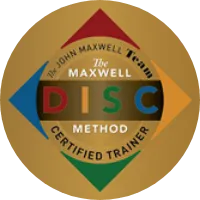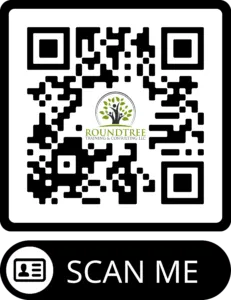
“Train the Trainer”
Usually: $5,000 - Join now: $3,997

"Train the Trainer” program
This is an 8-week program designed to equip participants with the skills and knowledge they need to become effective leadership trainers and coaches.
Week 1:
Foundations of Leadership Training
Objectives:
Understand the significance of leadership training and coaching.
Identify key attributes and competencies of effective leadership trainers.
Activities:
Interactive session on what makes a great leader and trainer.
Discuss various leadership theories and their application in training.
Reflection exercise on personal leadership styles and experiences.
Week 2:
Learning Theories and Adult Learning Principles
Objectives:
Dive into learning theories relevant to adult education.
Explore strategies for engaging diverse learning styles.
Activities:
Workshop on adult learning principles (Andragogy vs. Pedagogy).
Group discussions on tailoring training for different learning styles (visual, auditory, kinesthetic).
Create a learning style assessment tool.
Week 3:
Week 3: Curriculum Development and Training Design
Objectives:
Learn how to structure training programs and develop effective curricula.
Establish clear learning outcomes and objectives.
Activities:
Introduction to training design models (ADDIE, SAM).
Hands-on development of a training outline for a specific leadership topic.
Peer review of training outlines for collaborative feedback.
Week 4:
Coaching Fundamentals
Objectives:
Explore coaching methodologies and practice essential coaching skills.
Understand the differences between coaching, mentoring, and training.
Activities:
Introduction to various coaching models (GROW, COACH).
Role-playing exercises to practice coaching conversations.
Group discussions on challenges faced in coaching scenarios.
Week 5:
Advanced Facilitation and Communication Skills
Objectives:
Develop facilitation skills to manage discussions and engage participants effectively.
Enhance communication techniques for clarity and impact.
Activities:
Workshops on facilitation techniques (active listening, powerful questioning).
Practice sessions where participants lead discussions or activities.
Feedback exercises to refine communication skills.
Week 6:
Feedback, Assessment, and Evaluation Techniques
Objectives:
Learn to provide constructive feedback and develop assessment strategies.
Understand how to measure training effectiveness.
Activities:
Training on feedback models (SBI, BOOST) and assessment tools.
Create a rubric for evaluating participant performance.
Conduct mock feedback sessions with peers using effective techniques.
Week 7:
Designing and Delivering Engaging Sessions
Objectives:
Understand how to create and deliver engaging training sessions.
Explore the use of technology and multimedia in training.
Activities:
Design a 30-minute training session incorporating interactive elements (group work, technology).
Deliver the session to a small group and receive peer evaluations.
Discuss best practices for virtual training delivery if applicable.
Week 8:
Capstone Project and Future Development
Objectives:
Integrate and apply the knowledge and skills gained throughout the program.
Plan for continuous professional development as a leadership trainer.
Activities:
Capstone presentations where participants deliver full training modules to the group.
Constructive critique sessions to provide feedback on presentations.
Create a personal development plan outlining next steps for further growth as a trainer and coach.
Bonus
Additional Components
Resources
A curated list of books, articles, podcasts, and online courses on leadership training and coaching.
Evaluation
Continuous assessment through quizzes, peer feedback, and final project presentations.
certificate
Award a certificate of completion for those who meet the requirements at the end of the program.

Dr. Roundtree is the CEO of Roundtree Training & Consulting, LLC and a Senior Certified Professional with the Society of Human Resource Management (SHRM-SCP).


